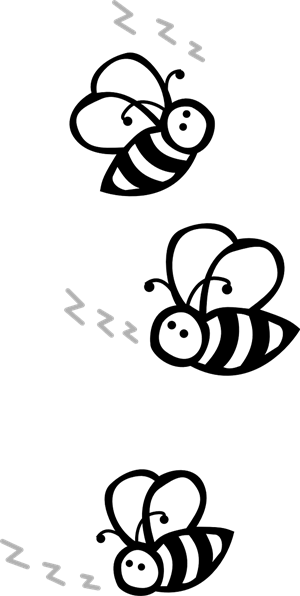
PUMPA - SMART LEARNING
எங்கள் ஆசிரியர்களுடன் 1-ஆன்-1 ஆலோசனை நேரத்தைப் பெறுங்கள். டாப்பர் ஆவதற்கு நாங்கள் பயிற்சி அளிப்போம்
Book Free DemoThe story "The Last Lesson" was written by Alphonse Daudet. The lesson wonderfully captures the human tendency to put off learning new things because they believe they have lots of time, yet they have no idea when doomsday will arrive and put an end to our ambitions and dreams.
The narrator of the story, little Franz, is a young school-going boy. One fine morning, the narrator was fearful because he was already late for school. He was well aware that his teacher, M. Hamel, would scold him, particularly for failing to revise the topic. The narrator's teacher had told the day before that he would question them on participles. The narrator, however, did not know anything about the topic, and he was more scared of being scolded.
The narrator of the story, little Franz, is a young school-going boy. One fine morning, the narrator was fearful because he was already late for school. He was well aware that his teacher, M. Hamel, would scold him, particularly for failing to revise the topic. The narrator's teacher had told the day before that he would question them on participles. The narrator, however, did not know anything about the topic, and he was more scared of being scolded.

Franz
For the time being, the narrator had another thought going in his mind. It was to run away from the class and enjoy the day out. As the weather was warm and bright, he thought of enjoying it. The narrator then describes the scenes outdoor to his readers. At the edge of the woods, birds were chirping. Behind the sawmill, he could hear the sound of Prussian soldiers drilling.
The landscape outdoors was more appealing than the school. The scenic beauty was tempting the narrator more than the rules of participles, but he resisted the desire and chose to attend school. The narrator then noticed a large gathering at the bulletin board as he passed past the town hall. He said that the bad news like losing the battles, the draft (messages/pieces of information), and the commanding officer's orders had been communicated to the people through this bulletin board for the last two and half years. The narrator continued heading towards the school, wondering what news might have been posted on the bulletin board at this time.
The landscape outdoors was more appealing than the school. The scenic beauty was tempting the narrator more than the rules of participles, but he resisted the desire and chose to attend school. The narrator then noticed a large gathering at the bulletin board as he passed past the town hall. He said that the bad news like losing the battles, the draft (messages/pieces of information), and the commanding officer's orders had been communicated to the people through this bulletin board for the last two and half years. The narrator continued heading towards the school, wondering what news might have been posted on the bulletin board at this time.
The narrator then walked hurriedly towards the school. The blacksmith, named Wachter, who had come along with his apprentice to read the news, called out to the narrator from behind, telling him that he didn't need to rush because he had plenty of time to reach school.
After hearing that, the narrator thought that the blacksmith was making fun of him as he was already late for school. Since he had walked so quickly, he was out of breath when he arrived at the school's garden. The narrator then depicts the typical morning atmosphere at the school. Usually, when school begins, a lot of noise can be heard out in the street. The noises of desks being moved, teachings being repeated in chorus, and the teacher's great ruler striking on the table could all be heard as he walked down the street.
Everything, however, was out of the ordinary on that particular day. There was no such sound coming from the school, and it appeared that it was closed for the day, as it usually was on Sunday mornings. The narrator expected the noise to sneak into the class without being noticed, but this did not appear to be possible. As the classroom was quiet, the narrator couldn't execute his plan. The narrator then peered into his classroom and saw his friends seated and their teacher, M. Hamel, walking in with an iron ruler under his arm.
The narrator was ashamed of being late and worried about punishment because he had to enter the classroom in front of everyone. He was perplexed because M. Hamel said nothing and, on the contrary, he kindly told the narrator to go and sit in his place quickly. He also said he was about to begin the class without the narrator.
After hearing that, the narrator thought that the blacksmith was making fun of him as he was already late for school. Since he had walked so quickly, he was out of breath when he arrived at the school's garden. The narrator then depicts the typical morning atmosphere at the school. Usually, when school begins, a lot of noise can be heard out in the street. The noises of desks being moved, teachings being repeated in chorus, and the teacher's great ruler striking on the table could all be heard as he walked down the street.
Everything, however, was out of the ordinary on that particular day. There was no such sound coming from the school, and it appeared that it was closed for the day, as it usually was on Sunday mornings. The narrator expected the noise to sneak into the class without being noticed, but this did not appear to be possible. As the classroom was quiet, the narrator couldn't execute his plan. The narrator then peered into his classroom and saw his friends seated and their teacher, M. Hamel, walking in with an iron ruler under his arm.
The narrator was ashamed of being late and worried about punishment because he had to enter the classroom in front of everyone. He was perplexed because M. Hamel said nothing and, on the contrary, he kindly told the narrator to go and sit in his place quickly. He also said he was about to begin the class without the narrator.
After then, the narrator moved quickly near the bench and sat down in his place. After overcoming his fear and becoming comfortable, the narrator noted that M. Hamel had worn an embroidered beautiful green coat, a frilled shirt, and the little black silk cap. M. Hamel usually wore it during inspection and prize distribution days. If that day had been any other, the narrator wondered what could have prompted M. Hamel to wear his beautiful attire. The school's atmosphere struck Franz as severe and strange. Furthermore, the senior village men — Hauser, who wore his three-cornered hat, the retired mayor, the postmaster, and others – sat on the last benches of the classroom. They all looked depressed.

Black hat
Hauser had brought his old and damaged reader with him. He'd opened it, placed his spectacles on it, and kept it on his knees. The narrator was perplexed and unsure about what was going on that day. M. Hamel then informed them that it was their "last lesson" in French, which he would teach them. He also said that an order was passed to teach solely German in Alsace (A historical region in northeastern France on the Rhine River plain) and Lorraine (A cultural and historical region in Northeastern France that is currently part of the Grand East administrative region) schools. In addition, he said that the German instructor would arrive the next day and urged the students to pay attention because this was the last French class.
The narrator was shocked to hear that he could no longer learn French and remembered it was put up on the town bulletin board. The narrator regretted spending his time seeking birds' eggs and playing in the Saar (a river in Western Europe, rising in the Vosges Mountains and flowing north to the Moselle River in Germany) by not being serious about his academics.

Saar river
The narrator didn't even know how to write. He had previously considered his books as unwanted weight, but now, he began to regard grammar and the history of the saints as his greatest friends, whom he could never abandon. Here one can find the narrator's change in attitude toward studying after learning that he would no longer be able to learn French. He was especially affected by the news that their teacher, M. Hamel, was leaving. He no longer considered the teacher to be irritable and strict.
M. Hamel was dressed in his fine Sunday clothes in honour of this final class. He also knew that the villagers had gathered to honour and praise M Hamel for his forty years of service at the school. The villagers had come to the class to make things right for their lack of academic achievement in their childhood. They also wanted to show their country respect and were disappointed that their mother tongue, French, would no longer be taught.
M. Hamel was dressed in his fine Sunday clothes in honour of this final class. He also knew that the villagers had gathered to honour and praise M Hamel for his forty years of service at the school. The villagers had come to the class to make things right for their lack of academic achievement in their childhood. They also wanted to show their country respect and were disappointed that their mother tongue, French, would no longer be taught.
While the narrator was thinking about the last day of M. Hamel, he heard the teacher calling his name. It was now the narrator's turn to recite participles. He wanted to please his teacher by reciting the topic in one go and without making any mistakes. His misery is reflected in his willingness to give up everything he owns in exchange for reciting participle. On the contrary, he got his words confused and stood there, clutching the desk. His heart was beating since he was ashamed and didn't want to face his teacher.
M. Hamel stated that he would not punish the narrator because he knew he would feel very bad. Then he said that it was the human tendency to put off learning new things because they believe they have lots of time. They would think they would study the next day, but the opportunity to learn had passed by, and they did not know where they had come out.
According to M. Hamel, there is a great problem with the people of Alsace. It was their fault because no one took learning seriously. He tells the pupils that their adversaries (the Prussians) would laugh at them and say that the Frenchmen cannot speak or write their language. He claims that the narrator should not feel bad about himself because everyone is responsible for that.
M. Hamel says that the narrator's parents were not interested in getting him educated. They wanted him to work on a farm or mill to help them financially. He also admitted that he was too responsible for the blame because he should not allow him to water his plants instead of teaching. In addition, he said that he would sometimes declare a holiday and go fishing.
M. Hamel stated that he would not punish the narrator because he knew he would feel very bad. Then he said that it was the human tendency to put off learning new things because they believe they have lots of time. They would think they would study the next day, but the opportunity to learn had passed by, and they did not know where they had come out.
According to M. Hamel, there is a great problem with the people of Alsace. It was their fault because no one took learning seriously. He tells the pupils that their adversaries (the Prussians) would laugh at them and say that the Frenchmen cannot speak or write their language. He claims that the narrator should not feel bad about himself because everyone is responsible for that.
M. Hamel says that the narrator's parents were not interested in getting him educated. They wanted him to work on a farm or mill to help them financially. He also admitted that he was too responsible for the blame because he should not allow him to water his plants instead of teaching. In addition, he said that he would sometimes declare a holiday and go fishing.
M. Hamel went to speak about one thing to the another. He then praised their mother tongue, French, to be the most beautiful, clear, and logical language. He advises the students to safeguard the language and never forget it since it is the only way out of slavery's jail. No one can enslave a person who speaks his native language fluently. Knowing the mother tongue as a language is a weapon in the struggle against dominance. The teacher then took a grammar lesson. The narrator was taken aback when he realised how quickly he grasped the material. He believed he had paid attention and that M. Hamel had patiently explained the lesson.
The narrator believed that the teacher wished to impart all his expertise before leaving. They had a writing lesson after the grammar. M. Hamel presented the class with new notebooks engraved with "France, Alsace, France, Alsace." Franz felt that there was a sense of patriotism throughout the class. The notebooks resembled French flags that were floating all around. The entire class was occupied with writing, and the only sound heard was the pens scribbling on the page.
When some beetles flew into the classroom, no one was disturbed because everyone was focused on their work. Not even the smaller ones, who were busy drawing their fish hooks, as if it was French too; not being disturbed by the buzzing of bees.
The narrator believed that the teacher wished to impart all his expertise before leaving. They had a writing lesson after the grammar. M. Hamel presented the class with new notebooks engraved with "France, Alsace, France, Alsace." Franz felt that there was a sense of patriotism throughout the class. The notebooks resembled French flags that were floating all around. The entire class was occupied with writing, and the only sound heard was the pens scribbling on the page.
When some beetles flew into the classroom, no one was disturbed because everyone was focused on their work. Not even the smaller ones, who were busy drawing their fish hooks, as if it was French too; not being disturbed by the buzzing of bees.

Buzzing of bees
The pigeons 'coo' could be heard very low throughout the classroom, and the narrator wondered if the Prussians would force them to change their language and coo in German. Here, the narrator tries to portray the scenario of pigeons and the Frenchmen that language comes naturally to humans and cannot be forced upon them. It might be because forcing people to change their language might be awful.
In between writing, the narrator noticed M. Hamel, who sat still and peered at various objects in the little classroom as if he wanted to remember everything before departing. M. Hamel had been teaching there for the past forty years. The only differences were that the desks in the classroom had worn out over time, the walnut trees in the garden outdoors had grown taller, and the hop vines he'd planted himself were twined around the roof's windows. The narrator believes that the teacher must be heartbroken to be moved away from where he has spent his last forty years of life.

Hop vines
As M. Hamel and his sister were prepared to depart the next day, the sound of his sister's packing and moving their baggage had been heard from the room upstairs. M. Hamel had the courage to hear the lesson from the entire class. After the writing task, they had a lesson on history. Later, the babies chanted and sang their rhymes ba, be bi, bo, bu.
On the other hand, Hauser had put on his spectacles and recited the letters with the students while holding the primer in both hands. He was sobbing, and his voice was trembling as he recited. The narrator had mixed emotions: he found it amusing to witness an old man like Hauser crying and trembling, but he also felt emotional like Hauser. This was a lesson the narrator will never forget.
Just then, the church clock struck twelve, and Angelus began. Angelus are the prayers said in the morning, in the middle of the day and in the evening in the Roman Catholic Church. At the same time, the sound of trumpets being played by Prussian soldiers returning from training was heard. M. Hamel's face had become dull and colourless as the class came to an end. He stood up straight and still, and Franz claims he had never been that tall before. Here the term "look so tall" doesn't speak the actual increase in height; instead, height is the symbolic representation of M. Hamel's delight in the language he teaches or his respect. M. Hamel began to talk but could not continue because his emotions overtook him. He got a piece of chalk and scribbled the words "Vive La France," which translates to "Long Live France," on the blackboard as large as he could. Then he stopped writing, leaned his head against the wall, and gestured to the students to go because the class was done.
On the other hand, Hauser had put on his spectacles and recited the letters with the students while holding the primer in both hands. He was sobbing, and his voice was trembling as he recited. The narrator had mixed emotions: he found it amusing to witness an old man like Hauser crying and trembling, but he also felt emotional like Hauser. This was a lesson the narrator will never forget.
Just then, the church clock struck twelve, and Angelus began. Angelus are the prayers said in the morning, in the middle of the day and in the evening in the Roman Catholic Church. At the same time, the sound of trumpets being played by Prussian soldiers returning from training was heard. M. Hamel's face had become dull and colourless as the class came to an end. He stood up straight and still, and Franz claims he had never been that tall before. Here the term "look so tall" doesn't speak the actual increase in height; instead, height is the symbolic representation of M. Hamel's delight in the language he teaches or his respect. M. Hamel began to talk but could not continue because his emotions overtook him. He got a piece of chalk and scribbled the words "Vive La France," which translates to "Long Live France," on the blackboard as large as he could. Then he stopped writing, leaned his head against the wall, and gestured to the students to go because the class was done.